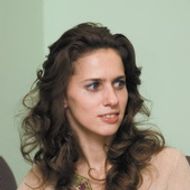Dissertation Defenses at HSE University Move Online

For the past month, all dissertation defenses at HSE have been conducted online. However, this format is far from new: over the past two years, more than 80% of defenses at HSE University were conducted with at least one committee member attending remotely.
The transfer of defenses to online formats at HSE has been quick and painless particularly thanks to the fact that, unlike most Russian universities, online defenses were already permitted by HSE regulations. Back in 2018, after the university received the right to independently establish degree conferment procedures, a regulatory framework was created for conducting dissertation defenses online.
Elena Kobzar, Department Head, Office of Doctoral Studies, HSE University

Moving any activity to an online format is a laborious task, and a dissertation defense is no exception. We created an infrastructure for this, tested various applications, and provided training for dissertation committee managers. Over the past two years, more than 80% of dissertation defenses were conducted with at least one committee member attending remotely. Now, since March 27, all HSE dissertation defenses have been conducted remotely entirely. Public viewership of the online broadcast is facilitated by links, which are provided by request.
The defense procedure, in which the dissertation is not discussed by a dissertation council of twenty to thirty people, but by a committee of five members, each of whom is a specialist on the topic of the dissertation, turned out to be more convenient in the conditions of self-isolation, says Elena Kobzar. It is much easier to organize and assemble a dissertation committee than a dissertation council. However, dissertation council meetings can also be conducted online at HSE—this is necessary in order to confirm the results of several defenses at once.
The first applicant to defend his dissertation entirely online was Alexey Rybalka, a Research Fellow at the HSE Economic Process Analysis and Forecasting Laboratory. ‘All of the well-known requirements gave me a healthy dose of adrenaline during my defense,’ says Alexey. ‘Indeed, back in January, the defense was scheduled for March 27—as it turned out, the last business day before the start of the non-working period announced by the president. Events unfolded rapidly; up until the last days we didn’t know exactly what format the defense would take, so we were diligently preparing various online options.’
The defense ultimately took place on Zoom with the committee members joining in from Moscow, Yekaterinburg, St. Petersburg, and Utrecht (Netherlands). ‘I was very fortunate with my committee; each professor took the time to pre-test the format,’ says Alexey. ‘In Zoom’s demo-conference mode a few days before the defense, a number of us comprehensively tested all the necessary functions: connecting to the conference, the audio, the video, a screen demonstration with defense presentation, and the recording function. Of course, I prefer to speak in person, when you can feel and see the emotions of the audience and convey your thoughts in a more compelling manner. However, the committee chair, Tatyana Dolgopyatova, moderated the event so deftly that I did not feel a significant difference and enjoyed the defense.’
Konstantin Loginov, a Research Assistant at the HSE Laboratory of Algebraic Geometry and its Applications, also did not initially plan on defending his dissertation online. A member of his committee who works abroad, Italian professor Alessio Corti of Imperial College London, was even planning on coming to Moscow so he could participate in the defense in person. However, at the last moment, the situation changed, and Konstantin assumed that the defense would be postponed indefinitely. Moving the event online using Zoom was good news for him.
Konstantin defended his dissertation from his family’s country home in the Tver Region. The only snag they encountered, he recalls, is that ‘at one point my home wi-fi started to get a bit dodgy, so I had to quickly switch to a cellular connection.’ As Konstantin explains, the defense was carried out according to standard regulations and lasted about an hour. ‘I talked about my findings and showed my slides; the committee members read reviews and asked questions; I answered them, and my supervisor Yuri Prokhorov said a few words about the dissertation.’
A significant drawback to doing one’s defense remotely, Konstantin says, is the lack of informal face-to-face interaction, which usually happens afterwards. However, the celebratory ‘reception’ nevertheless took place, which his colleagues, who wished to congratulate him on the successful defense, organized remotely.
See also:
Doctoral Student Explores the Challenges Faced by International PhD Seekers During the Pandemic
In late June 2024, a pre-defence of Nurudeen Abdul-Rahaman’s dissertation took place at the HSE Institute of Education. Nurudeen Abdul-Rahaman, a doctoral student from Ghana, has presented his dissertation ‘Academic and Social Integration of Foreign Doctoral Students at Russian Universities during the Covid-19 Pandemic’ for the degree of Candidate of Sciences in Education (PhD).The HSE News Service spoke with Nurudeen as well as his academic supervisor, Evgeniy Terentev, Director of the Institute of Education, about their extensive research on international doctoral students in Russia and Nurudeen's contribution to this research.
‘We Cannot Understand the Modern Ideological Confrontation without the Accusations that Emerged during the Lausanne Process’
Rainer Matos Franco, from Mexico, defended his PhD thesis with honours at HSE University this June. In his dissertation, Rainer Matos Franco examines the history of anticommunism in Europe during the 1920s. The HSE News Service spoke with Rainer and his academic supervisor, Tatiana Borisova, about the significance of the Lausanne Process for the Cold War and contemporary history, the opportunities provided by HSE University for international PhD candidates, and the challenges of working with a vast database of historical sources.
‘I Am Able to Tell My Students Things That I Always Wanted to Tell People in Russia’
Ana Livia Araujo Esteves, from Sao Paulo, Brazil, is a journalist, a third-year doctoral student of International Relations, and visiting lecturer at the HSE School of International Regional Studies. In her interview for the HSE News Service, she speaks about her motivation to carry out research and teach students in Russia, shares some tips for people from Latin America living in Moscow, and talks about why a dog can be a reason to stay in Russia for just a bit longer.
Zaruhi Hakobyan Shortlisted for HSE Alumni Awards
Zaruhi Hakobyan, master’s graduate of the HSE University Faculty of Economic Sciences and research scientist at the University of Luxembourg, is involved not only in research but also in organising academic events for young scientists and students. As a foreign graduate of HSE University, Zaruhi was nominated for the HSE Alumni Awards ‘for her tireless enthusiasm in popularising economic science, teaching, and research at the international level’ and made the shortlist.
‘Studying at HSE Was a Chance for Me to Get to Know Some Supportive Seniors, Knowledgeable Professors, and Wonderful Friends’
On August 4, 2023, a pre-defence of the thesis on ‘Refugee-Host Community Conflict over Assimilation, Integration, and State Legitimacy: The Case of Rohingyas in Bangladesh’ by Md. Reza Habib will be held at HSE University. The preliminary defence will take place at a joint meeting of the HSE School of Sociology and the International Laboratory for Social Integration Research. Md. Reza Habib shared his experience of studying and preparing his PhD with the HSE News Service.
‘At HSE University, We Receive Substantial Support for Our Research’
Wenrui Zhang, from China, is a recent graduate of theMaster’s in Economics and Economic Policy at the HSE UniversityFaculty of Economic Sciences. Having successfully defended his master’s thesis on the impact of COVID-19 on the incomes of vulnerable groups, Wenrui has set his sights on publishing his research and enrolling in adoctoral programme at the university. The HSE News Service interviewed Wenrui about his achievements so far and his goals for the future, and also spoke to Prof.Elena Kotyrlo, his academic supervisor.
‘I Hope to Make Meaningful Contributions to the Academic Community’
Why do international students at HSE University decide to pursue a career in academia? What fields in economics are relevant to PhD students? Richard Asiamah from Ghana and Alesya Bukreeva from Uzbekistan are current master’s students at the Faculty of Economic Sciences, but have already received scholarships from the faculty to continue their studies as doctoral students at the university. Below, they share their experiences, while Denis Melnik, Academic Director of the Doctoral School of Economics, suggests some tips for the application process.
1,700 International Participants Named Winners of Open Doors International Olympiad
On March 16, the results of the Open Doors International Olympiad for master’s and doctoral applicants were announced. The competition is organised by the Association of Global Universities with the support of the Ministry of Education and Science of Russia and the Federal Agency for the Commonwealth of Independent States Affairs, Compatriots Living Abroad, and International Humanitarian Cooperation (Rossotrudnichestvo). HSE University is one of the Olympiad’s organisers and the site of its distributed project office.
‘My PhD Taught Me about Life, Professionalism, Research, and Controlling My Emotions’
Wai Yan Phyo Naing first came to HSE University from Myanmar to enrol in a master’s programme at the Faculty of World Economy and World Affairs in 2015. After graduation, he decided to pursue a PhD at the Doctoral School of International and Regional Studies. On February 16, 2023, he successfully defended his dissertation on ‘Evolution of Myanmar’s Policy Towards China (1988–2020)’.
‘Working in Academia Is My Lifelong Desire’
Majid Sohrabi is a 28 year-old student from Iran currently enrolled in a doctoral programme at the HSE University Faculty of Computer Science. Before starting his PhD, he graduated with honours from the university’s Master of Data Science programme. In addition to studying, he also works as an assistant at the School of Data Analysis and Artificial Intelligence and a research assistant at the Laboratory for Models and Methods of Computational Pragmatics.


